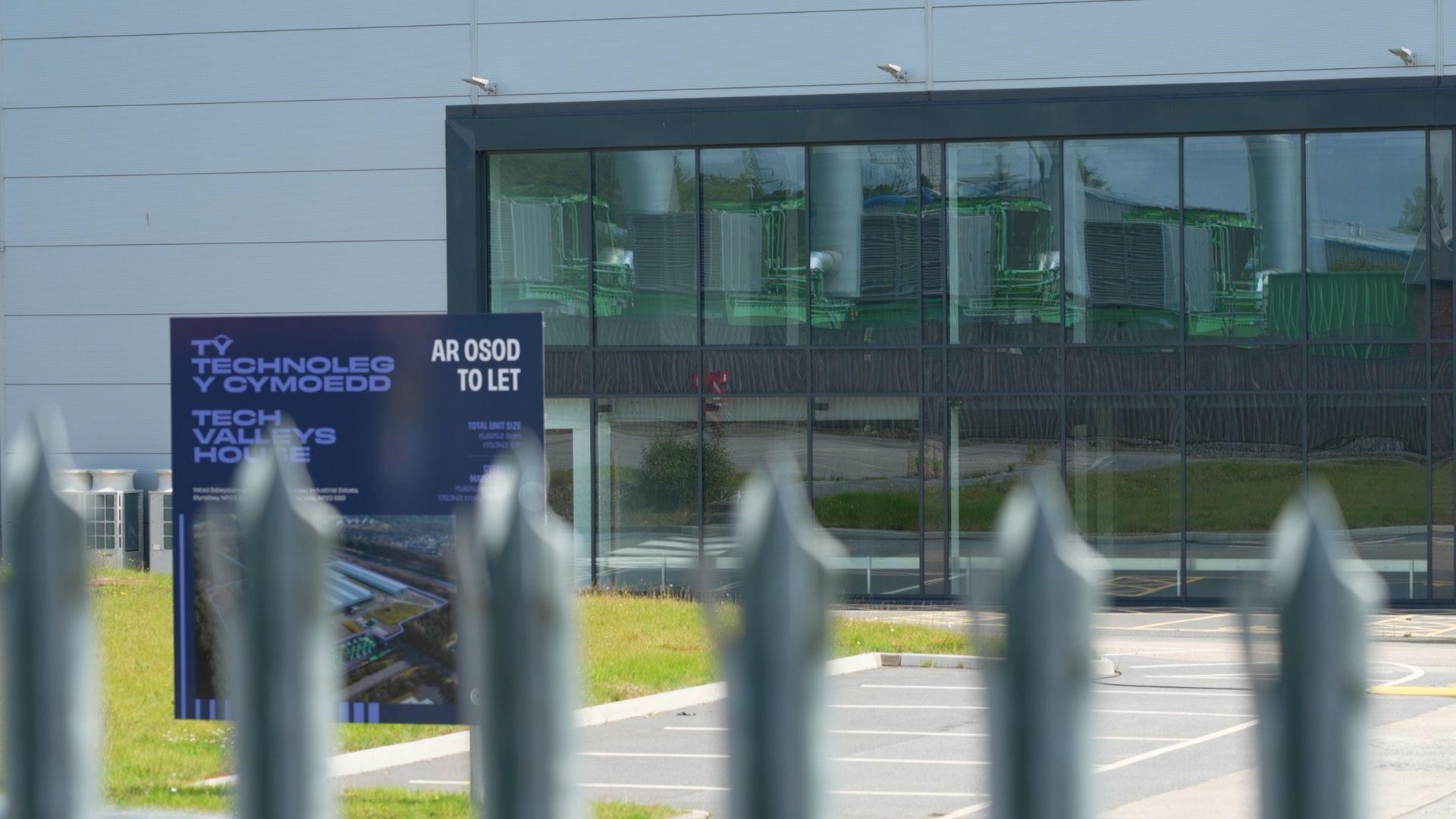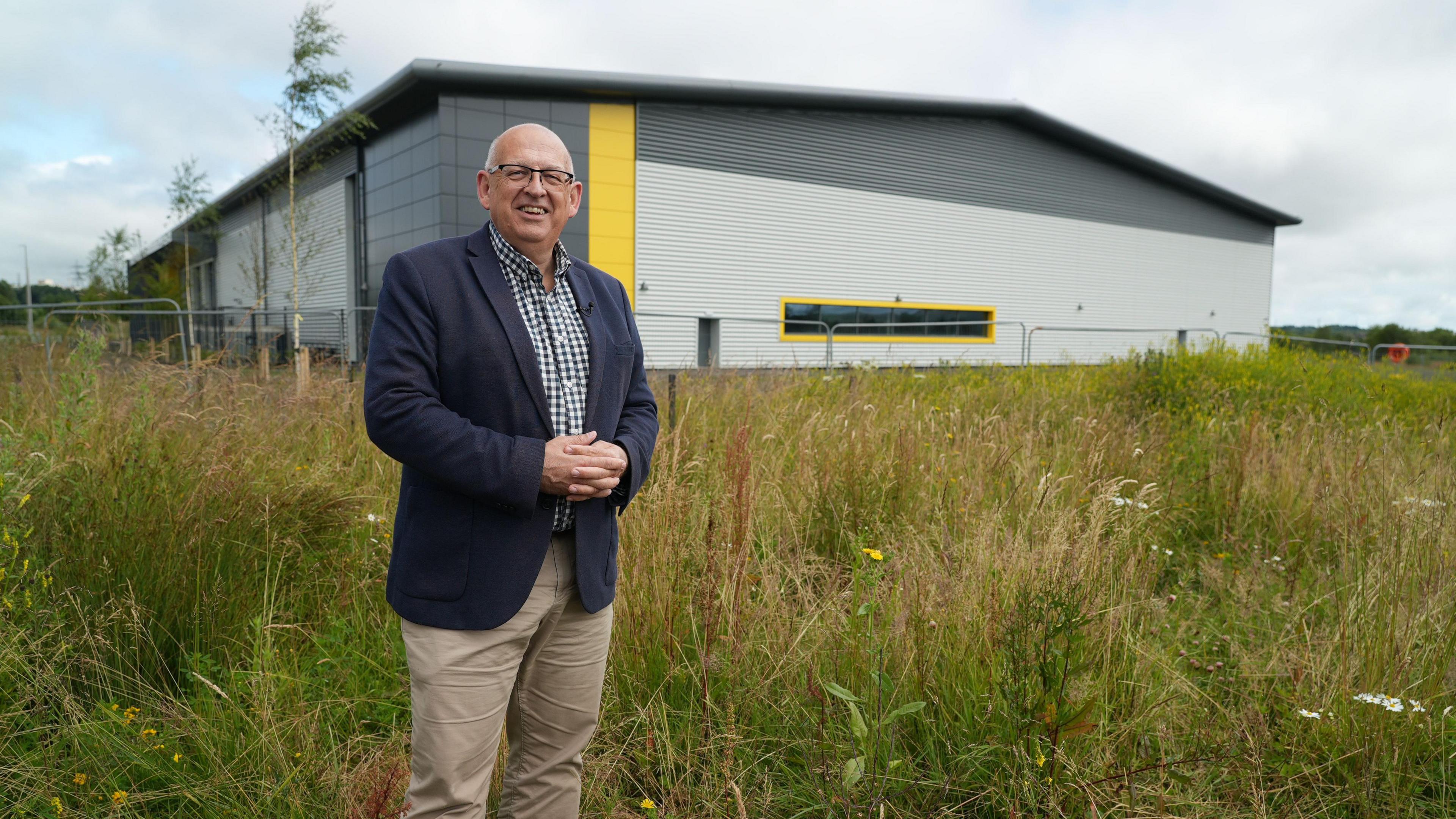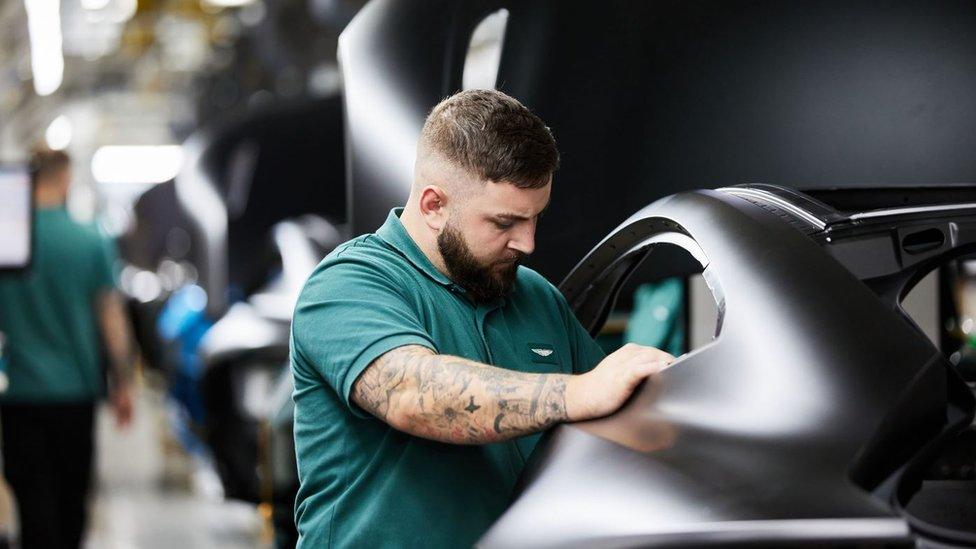Concerns over failed sports car deal 'overspend'

TVR abandoned plans to build its new Griffith model in Wales
- Published
The failure of a deal to produce sports cars in Wales was part of a “disappointing pattern” of Welsh government investments, it has been claimed.
Conservative Mark Isherwood, who chairs an influential Senedd committee, said he was concerned about a “significant overspend” in attempting to attract the company behind the TVR, external car.
The auditor general has warned that taxpayers could be millions of pounds out of pocket after the carmaker decided not to build the latest TVR Griffith model in Ebbw Vale, Blaenau Gwent.
The Labour Welsh government said TVR had repaid a loan and its policy had been “highly successful” in attracting businesses to Wales.
TVR frustration over car factory renovation delays
- Published29 January 2020
Ministers buy stake in car firm TVR
- Published16 January 2018
TVR to create 150 jobs in Ebbw Vale
- Published22 March 2016
TVR is known for its classic British sports cars
When the Welsh government began its attempt to attract TVR to Wales in 2016, it invested £500,000 in a new parent company which planned to restart production of the iconic car brand.
It also gave the company a £2m loan towards the cost of developing a prototype vehicle, and later bought and renovated a building in Ebbw Vale where the cars could be produced.
The building cost £4.75m to buy and a further £7.6m to refurbish, and would be leased on commercial terms to TVR.
But by the beginning of this year, TVR had repaid the loan with interest, and said it would not be producing cars in Wales.

A new company resurrected the classic TVR but will not build its new model in Wales
TVR abandoned its move to Wales in 2024
Mr Isherwood said there seemed to have been “a repeating pattern, a disappointing pattern, of high profile investments” which had not delivered a positive result for the taxpayer.
As chairman of the Public Accounts and Public Administration Committee, external (PAPAC), Mr Isherwood scrutinises spending decisions, and said the committee would be examining the TVR deal after the summer recess.
“It is more than disappointing that there have been a series of Welsh government investments or use of public resource to attract businesses into Wales with the promise of more jobs and economic growth," he said.
“Where that has failed to be fulfilled, there has to be a balance struck between attracting businesses into Wales, which we all want to see, and the risks associated with that."
In a letter to PAPAC in July, Auditor General Adrian Crompton said the Welsh government had to decide whether to sell the refurbished Ebbw Vale site at a loss, or lease it and hope to recoup their money.
He outlined the due diligence that had been conducted by officials ahead of the TVR deal.
The building had a market value of around £7.5m, he said, which would represent a loss of £4.85m against the costs of purchasing and refurbishing the site.
Leasing it could generate between £7m and £11m over 10 to 15 years, he said.
But Mr Crompton also said the anticipated refurbishment cost had originally been £6.06m, but this had risen to £7.6m.
After receiving the auditor’s letter, Mr Isherwood told BBC Wales this was “a significant overspend” which his committee would examine.

Tech Valleys House was bought and refurbished for TVR by the Welsh government
Welsh government funding intended to attract TVR
A Welsh government spokesperson said its policy of providing buildings had been “highly successful” in attracting companies to Wales.
“It is an approach which continues to deliver thousands of good jobs, significant investment and substantial supply chain opportunities across Wales,” it said.
The government continues to have a stake in the company, and the spokesperson said the refurbished building in Ebbw Vale “represents a fantastic opportunity for any business to acquire a modern manufacturing facility in the region".
The TVR building is known as Tech Valleys House and is understood to have attracted interest from several potential occupiers since it was marketed.
Nearby is another high-spec industrial building, called Rhyd-y-Blew, which was built by the Welsh government and is now awaiting a tenant.

Property expert Chris Sutton said government investment in sites such as Rhyd-y-Blew were good for the economy
The TVR Griffith would have been built in Ebbw Vale
The site is believed to be under offer from a local business which wants to base itself there.
“Fundamentally, property development sites and buildings are part of the business environment. And the problem is, it's not economic for firms to build them, so it needs public sector support,” said Chris Sutton, a chartered surveyor who broadly backs the Welsh government’s strategy.
He said the Heads of the Valleys was plagued by industrial buildings which were funded by the old Welsh Development Agency and were now nearing “the end of their economic life.”
“We need new, modern floor space,” said Mr Sutton. “Grade A buildings attract Grade A occupiers.”
The building standards followed by the Welsh government were addressing the shortage of good industrial buildings, Mr Sutton argued.
TVR did not respond to a request for comment, but the company has previously confirmed that it had repaid its £2m loan to the Welsh government along with accrued interest.
It announced in December 2023 that it would base itself in Thruxton in Hampshire, and the auditor general said the company confirmed to the Welsh government in February 2024 that it no longer wanted to lease the refurbished factory or base itself in Wales.
Related topics
- Published19 February 2024

- Attribution
- Published24 January 2024

- Published2 December 2021
